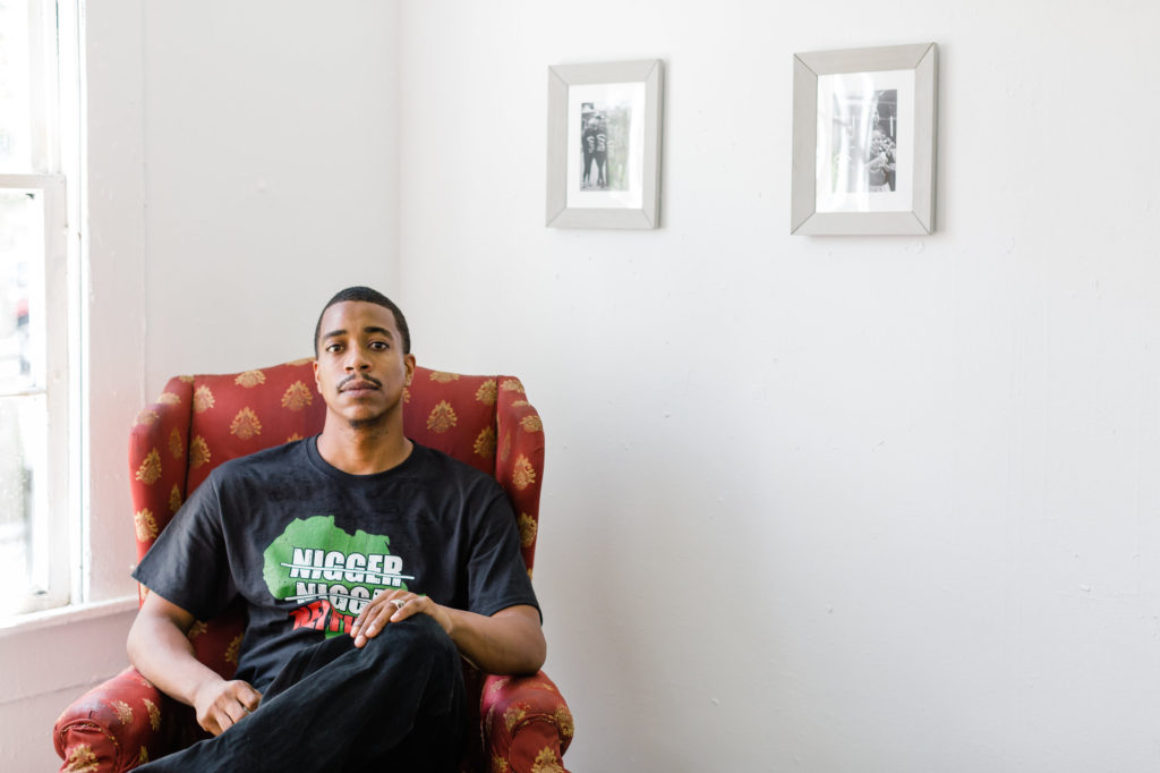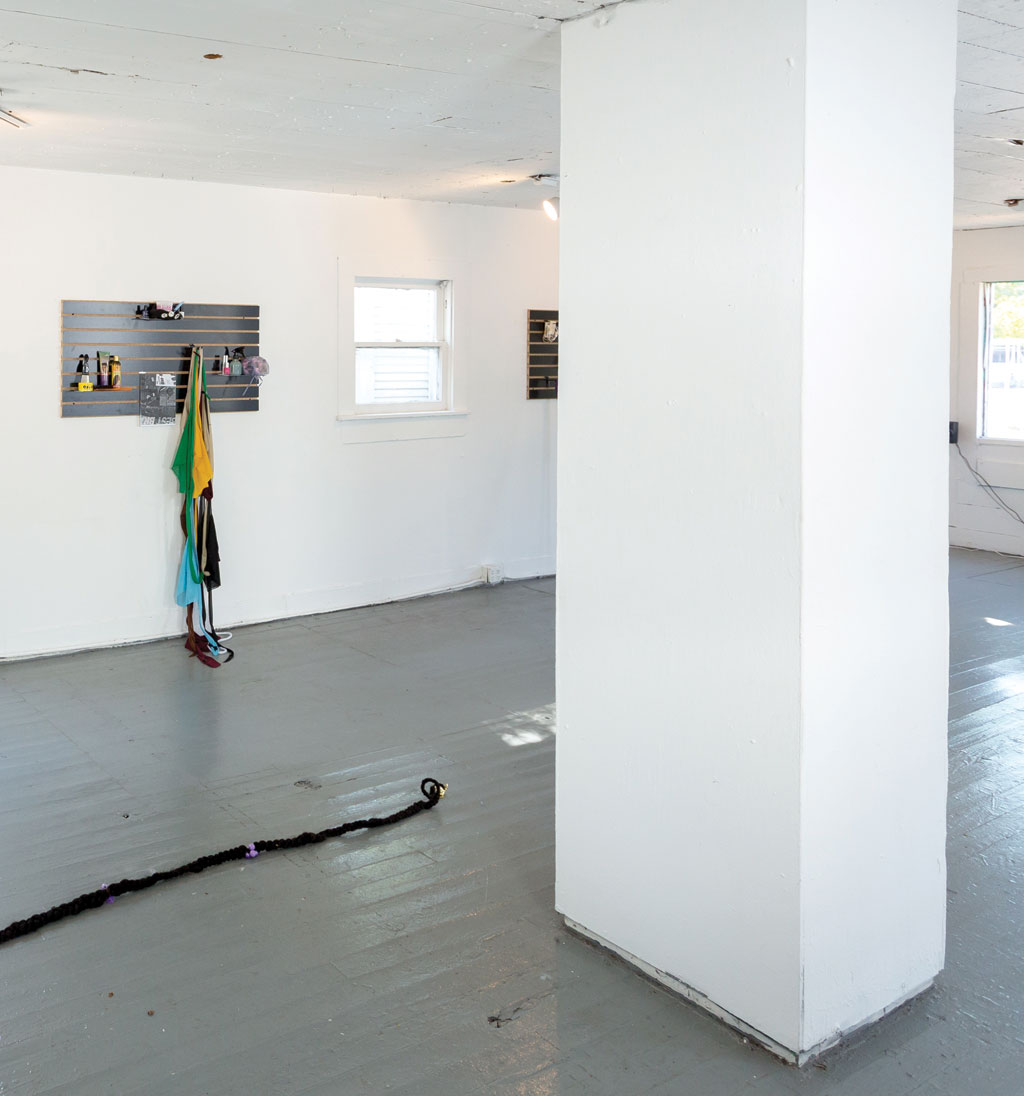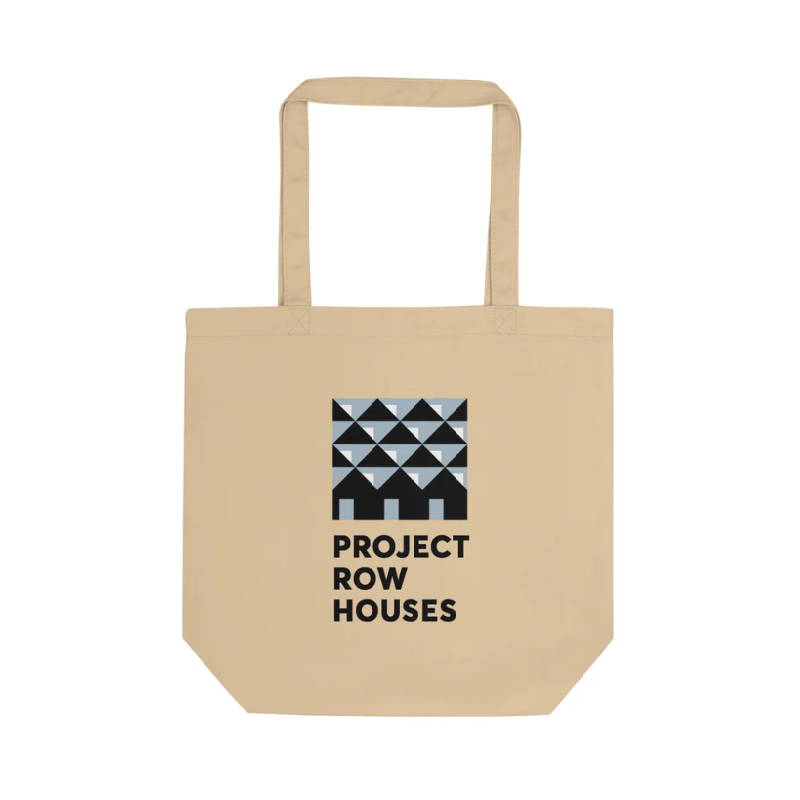Beautiful, Still
Interview by McKenzie Watson
Photos by Alex Barber
Visitors to Colby Deal’s installation are greeted by a photo series titled Beautiful, Still. The series is a combination of candid shots from the Third Ward community and what Deal terms ‘psychologically stimulating images’ – “staged images that challenge the thought process of who, what, when, why, and where.”
It’s in the staging of these deliberately assembled images that Deal is able to be most intentional as an artist. Following in the tradition of photographer Gregory Crewdson, Deal arranges every detail of his thought-provoking tableaux, which he then freezes on film. “Each staged image, there’s an important story behind it that I want people to know,” he revealed. “Those staged images force people to ask questions.”
All of Deal’s photographs, whether staged, candid or intimate portraits, focus on the subjects as relational beings, individuals existing within a social context. The intimate portraits focus on a single subject yet provide exterior information to suggest how that person might relate to others. The staged photographs typically include more than one subject, “to speak to the concept of family and community, coming together, working together.”
Deal’s concept of community is highly interdependent, and he seeks to make that explicit in his images. “When people come together, we are able to make so much more happen than being solo,” Deal stated. “Sometimes we have to come together to make things happen. For there to be a purpose for motherhood, there has to be a child – a child for you to guide, a child for you to dedicate your life to and give instruction to. Men, we have our mothers and we have our cousins, our brother-in-laws. We talk to those people to get other experiences from life so we can learn together.”
Deal uses his photography as a means of overturning common narratives about the neighborhood and its people. “The reason I’m doing this is because I feel our people – African-American, Brown, people in low-income areas – they’re looked at negatively a lot of times. I feel like it’s our responsibility and my responsibility as an African-American artist to filter the imagery that we allow to be shown, through the media and through other people’s eyes… We have to take responsibility for the images in our households.”
“Even though this neighborhood and community are viewed as ugly or something unpleasant, there’s still a bunch of beauty here to be seen,” Deal stated.
While the Summer Studios residency at Project Row Houses is specifically designed to facilitate neighborhood-influenced creative practice, Deal already has a personal stake in Third Ward. His paternal grandmother lived on Simmons Street, approximately a mile from Project Row Houses, and images of her home have figured into Deal’s installation.
Family and community are prominent themes throughout Deal’s body of work, specifically as explored in the context of the neighborhood. Speaking to the importance of place in his work, Deal said, “This is the community where people usually don’t go, or they view as unfavorable. It’s important to show these good things happening, these happy times, in this place.”
Not all the images will be sourced from Third Ward, though. “You’ll see some that were taken on the outskirts of Fifth Ward,” Deal added. “That’s where my mother’s mother lives. That area still goes through the same skepticism…”
“It doesn’t have to be in a really fancy neighborhood or a suburban area,” Deal stated, “for good things to happen, for you to find good imagery.”
However, this doesn’t mean that Deal’s creative practice is restricted to neighborhoods like Third Ward or Fifth Ward. When asked what he would shoot if placed in a fancy neighborhood or suburban area, he responded, “I’d still shoot the same thing… That’s the whole point of the project: people can accomplish things or ‘attain success’ and go on to a ‘better life’ – not saying that this life is bad – but they’re able to attain the goals that they want. I seek out that natural image everywhere, because I can still see through a person’s eyes their history, the pain that they went through. It doesn’t matter where I am.”
Deal hopes that visitors will be emotionally impacted by his installation. His work begins in a deeply personal place but presents it in a way that can translate universally. “First of all I photograph and make art as a release and as a healing process from a lot of things that I’ve dealt with,” Deal explained. Many of his photographs feature family members in settings where they have lived or have personal ties. By depicting familiar scenes from his own life, Deal hopes to move beyond the particular and produce images that resonate with a broader audience.
“I’m shooting what’s there, what’s around me, real, natural life events,” Deal summarized. “Showing real emotion, real things, inner thoughts – I’m displaying that… People can relate to guys playing dominoes on the corner, family getting together and having some drinks, an old lady cooking in pots with steam coming out of them. People laughing in a photograph – people can relate to that.”
Speaking of visitors to his installation, Deal stated, “I want them to sort of lean in and say, I’ve been there.”
—
Colby Deal is a photographic artist born and raised in Houston, Texas and is currently a senior at The University of Houston pursuing his BFA in Photography. Within his practice he explores many elements such as the culmination of not only the psychological environment but the physical as well. He wants to show the dynamic range of family, community and the individual by combining street photography and portraiture to capture vibrant communities. Colby is directly inspired by his upbringing. As a child he remembers getting to see his family’s photographs that were mostly taken by his father. This appreciation for slowing down and concentrating on photographing what’s right in front of him, “The Now” has led him to be more in touch with using analog photography and giving up that instant gratification that comes with shooting digitally.







